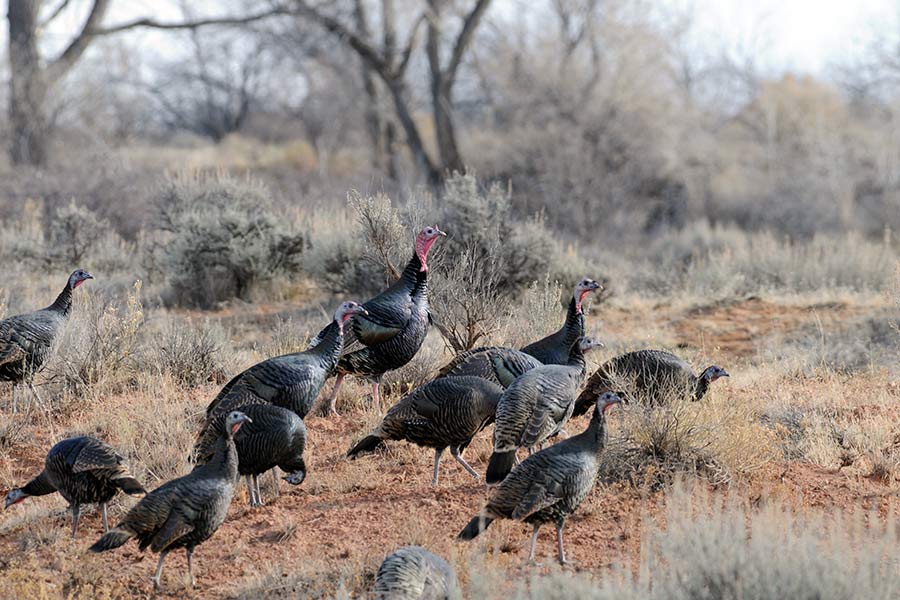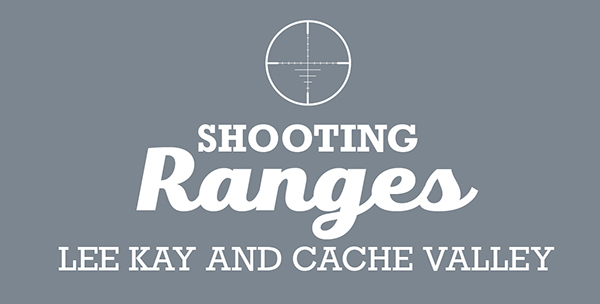Correction: A previous version of this news release stated that the 25% cap on the turkey permits would only apply to the northern and central regions. That has been updated to reflect that the cap applies to the whole state.
Utah Wildlife Board approves changes for 2022 upland game, turkey hunts
Salt Lake City — The Utah Wildlife Board approved a few changes to turkey hunting and upland game hunting in Utah, as well as some changes to the Landowner Association program, during its meeting on Thursday.
Upland game management plan
The Utah Division of Wildlife Resources in coordination with the Utah Upland Game Plan Committee — which includes members from a variety of federal agencies, local universities, conservation groups and non-government organizations — created a new Utah Upland Game Management Plan. The Utah Wildlife Board approved the plan during Thursday's meeting.
The plan will direct the management of several upland game species in the state for the next 10 years (from 2022–2032). The plan includes three goals, including:
- Population maintenance and monitoring harvest from hunting
- Habitat improvement and management
- Maintaining and increasing opportunities to hunt the various upland game species found in Utah
Turkey hunting changes
In addition to a new management plan, the wildlife board also approved a few changes to turkey hunting. Previously, hunters could purchase three either-sex permits for the fall turkey hunts. The fall turkey hunt was implemented in 2014 as a way to address ongoing nuisance turkey issues and depredation that result in damage to private property.
"Because these hunts are implemented to decrease the turkey populations in localized urban/agricultural areas, having hunters harvest female turkeys would be more beneficial to help decrease turkeys in those targeted locations," DWR Upland Game Coordinator Heather Talley said. "However, we noticed that a higher number of male turkeys are being harvested during these fall hunts than we expected."
The wildlife board voted to reduce the number of fall turkey permits to only one either-sex permit per hunter and to remove public land, so the fall turkey hunts only occur on private lands. The board also voted to cap the number of permits in Utah at 25% of the number of permits sold in 2021. As a result, there will be 2,305 permits for the northern region, 750 permits for the central region, 375 permits for the southern region and 35 permits for the southeastern region.
During the 2022 legislative session, the Utah Wildlife Board was directed to designate species that could be hunted with air rifles. As a result, the board voted to allow the use of air rifles for hunting rabbits and hares and during the fall turkey hunts, as long as an excise tax could be added to air rifles that would help fund conservation efforts (like the Pittman-Robertson Act with other firearms).
Resuming sage grouse hunt
There are currently three hunting units that allow sage grouse hunting in Utah — the Diamond-Blue Mountain, Rich County and West Box Elder County. The Parker Mountain hunting unit was closed to sage grouse hunting in 2021, due to population declines in that area. The areas where sage grouse hunting is allowed in Utah are where the populations are doing well, and the hunting permits are re-evaluated each year and allocated based on population estimates.
Due to increased populations over the past year, the Utah Wildlife Board approved reopening the Parker Mountain hunting unit to sage grouse hunting for the 2022 season. Those hunting permits will be kept at or below 5% harvest of the total population in that area.
Proposed changes to Landowner Association permits
After a directive from the Utah Wildlife Board to look at ways to update the current Landowner Association program and its allocated hunting permits to make it more consistent across the state, the DWR created a diverse committee that held several meetings over the past year to propose updates to the program.
After feedback from that committee and members of the public, the wildlife board voted to approve several changes to the general-season landowner permits, including:
- Instead of each region of the state receiving 600 general-season buck deer permits, those permits will be issued to landowners by unit.
- The permits will be allocated through a separate landowner drawing, where qualified landowner applicants can potentially receive up to five permits.
- Landowner appreciation permits will be combined with the landowner general-season buck deer permits.
- The landowner drawing will take place after the big game drawing, so landowners will know if they already drew a permit.
- The landowner applicant that draws will receive a voucher that can be given to a qualifying individual to redeem.
- A landowner can qualify with 640 acres of deer habitat or 100 acres of cropland that deer are using.
- These changes will go into effect in 2023.
Several changes were also made to the landowner limited-entry vouchers:
- Vouchers given to landowners will be determined by the percentage of LOA land in the species' habitat.
- There are two potential options for public access:
- Access will be awarded to public hunters by the DWR and will equal the number of private vouchers the landowner receives. Under this option, both types of hunters will be able to hunt all of the public and private lands within the LOA.
- LOAs would retain 80% of the vouchers, but the vouchers would only be valid on private land enrolled in the LOA. The other 20% of the vouchers would go to public hunters, who would receive access to the private LOA lands.
- LOA presidents will be required to attend training each year.
- These changes will go into effect for the 2024 hunting season.
The board also voted to give LOA landowners the opportunity to propose future additional program changes to the committee and the DWR. Any proposed changes would be shared at public Regional Advisory Council meetings in August and September and would go to the Utah Wildlife Board for consideration on Sept. 29, 2022.
The board also voted to have the DWR look into options for adding a youth Dedicated Hunter program to provide additional opportunities for youth to hunt big game every year.
You can watch the full meeting on the Utah Department of Natural Resources YouTube channel.

















